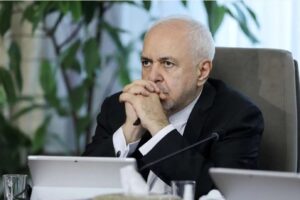Under the terms of the Joint Comprehensive Plan of Action (JCPOA), the agreement distinguishes its members not as “parties” in the traditional treaty sense, but as “participants”. This designation is not merely semantic. It reflects a functional concept: participation is not a fixed status acquired once and for all, but a dynamic condition contingent on continued engagement, good faith compliance, and adherence to the object and purpose of the agreement. In legal terms, it implies an ongoing role in sustaining and implementing the deal’s provisions.
The E3—France, Germany, and the United Kingdom—have in recent months taken a series of positions and actions that are fundamentally incompatible with the role of JCPOA participants.
First, their failure to uphold their own obligations under the accord, particularly with regard to the normalization of economic and trade relations with Iran, has severely undermined the balance of commitments on which the JCPOA rests. Despite repeated assurances, the E3 never delivered meaningful sanctions-lifting or economic normalization after the U.S. withdrawal in 2018. This failure effectively denied Iran the primary benefit of the deal and contributed to its gradual unraveling.
Second, their tacit and, at times, explicit support for the coordinated U.S.-Israeli strikes on safeguarded Iranian nuclear facilities in 2025 constitutes a fundamental betrayal of the JCPOA’s core premise. These attacks dismantled the physical infrastructure of Iran’s nuclear program and dealt a fatal blow to the legal and diplomatic framework that sustained the agreement. The JCPOA was designed to resolve disputes through diplomacy, not war. Endorsing or tolerating its military destruction is tantamount to abandoning its object and purpose.
Third, the E3’s recent rhetorical shift—from calls for Iranian compliance to public demands for the ending of Iran’s nuclear program—places them in open violation of both the JCPOA and UN Security Council Resolution 2231. Both documents explicitly recognize Iran’s right to enrich uranium under certain limits (e.g., 3.67% under the JCPOA). By echoing maximalist U.S. and Israeli positions that seek to deny Iran this right altogether, the E3 have positioned themselves outside the interpretive consensus that defines participation.
Taken together, these actions demonstrate that the E3 are no longer acting as good-faith participants in a living agreement. Their conduct has shifted from preserving the JCPOA to actively undermining it. According to well-established principles of international law, a party that materially breaches or repudiates a treaty cannot then invoke its enforcement mechanisms in bad faith.
Therefore, the E3’s attempt to trigger the JCPOA’s dispute resolution mechanism and reimpose UN sanctions via the so-called “snapback” is legally and politically untenable. Participation requires more than “association”—it demands continued fidelity to the agreement’s terms and spirit. Having disqualified themselves through breach, abandonment, and contradiction, the E3 can no longer credibly claim the status of participants, nor exercise the rights reserved for those who still uphold the deal.
A move to trigger snapback will eliminate the E3 from the negotiating process in one of the most consequential dossiers on the international relations’ dock. It will formalize their disqualification as credible interlocutors, sever their historic diplomatic channels with Iran, and render them strategically irrelevant in shaping the future of non-proliferation diplomacy. In a global landscape defined by shifting power dynamics and the emergence of new strategic alignments, the E3 must act decisively if they wish to preserve their influence. The path forward lies in regaining Iran’s trust as opposed to further antagonizing it—through legal consistency, diplomatic seriousness, and a demonstrated commitment to the principles they once claimed to uphold.













